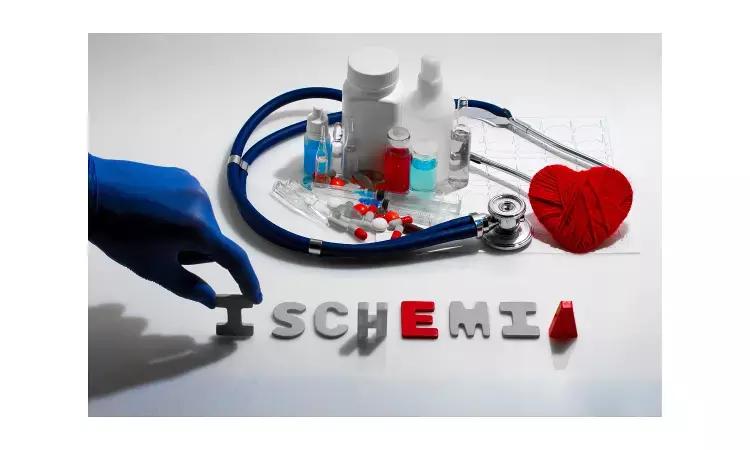Routine Invasive Therapy Does Not Reduce Major Ischemic Events: ISCHEMIA Trial
- byDoctor News Daily Team
- 05 August, 2025
- 0 Comments
- 0 Mins

Ischemia is a serious concern as some part of the body, vital organs such as heart or brain, isn't getting enough blood. Approximately 1.5 million cases of ischemic myocardial infarction (MI) occur annually in the United States; the yearly incidence rate is approximately 600 cases per 100,000 people. The goal of myocardial ischemia treatment is to improve blood flow to the heart muscle. Depending on the severity of your condition, doctor may recommend medications, surgery or both.
The ISCHEMIA trial fails at proving that routine invasive therapy was associated with a reduction in major adverse ischemic events compared with optimal medical therapy among stable patients with moderate ischemia.
Trial is published in journal American College of Cardiology
The trial compared routine invasive therapy with optimal medical therapy among patients with stable ischemic heart disease and moderate to severe myocardial ischemia on noninvasive stress testing. Patients with stable ischemic heart disease and moderate to severe ischemia were randomized to routine invasive therapy included 2,588 participants versus medical therapy had 2,591.
In the routine invasive therapy group, subjects underwent coronary angiography and percutaneous coronary intervention (PCI) or coronary artery bypass grafting (CABG) as appropriate. The primary outcome of cardiovascular death, myocardial infarction, resuscitated cardiac arrest, or hospitalization for unstable angina or heart failure at 3.3 years occurred in 13.3% of the routine invasive group compared with 15.5% of the medical therapy group.
Over the entire follow-up period, cardiac catheterization was performed in 96%of the invasive group vs. 28% of the medical therapy group. Coronary revascularization was performed in 80% of the invasive group vs. 23% of the medical therapy group
Results concluded among patients with stable ischemic heart disease and moderate to severe ischemia on noninvasive stress testing, routine invasive therapy failed to reduce major adverse cardiac events compared with optimal medical therapy. There was possible enhanced benefit for invasive compared with heart failure/left ventricular dysfunction.
Reference: https://www.acc.org/latest-in-cardiology/clinical-trials/2019/11/15/17/27/ischemia
Disclaimer: This website is designed for healthcare professionals and serves solely for informational purposes.
The content provided should not be interpreted as medical advice, diagnosis, treatment recommendations, prescriptions, or endorsements of specific medical practices. It is not a replacement for professional medical consultation or the expertise of a licensed healthcare provider.
Given the ever-evolving nature of medical science, we strive to keep our information accurate and up to date. However, we do not guarantee the completeness or accuracy of the content.
If you come across any inconsistencies, please reach out to us at
admin@doctornewsdaily.com.
We do not support or endorse medical opinions, treatments, or recommendations that contradict the advice of qualified healthcare professionals.
By using this website, you agree to our
Terms of Use,
Privacy Policy, and
Advertisement Policy.
For further details, please review our
Full Disclaimer.
Recent News
Merck Keytruda wins European Commission nod for lo...
- 30 October, 2025
UP NEET 2025 round 3 allotment results postponed
- 30 October, 2025
Achin Gupta to succeed Umang Vohra as Cipla MD, GC...
- 30 October, 2025
Mumbai shocker: KEM Hospital doctor stabbed by col...
- 30 October, 2025
Daily Newsletter
Get all the top stories from Blogs to keep track.


0 Comments
Post a comment
No comments yet. Be the first to comment!